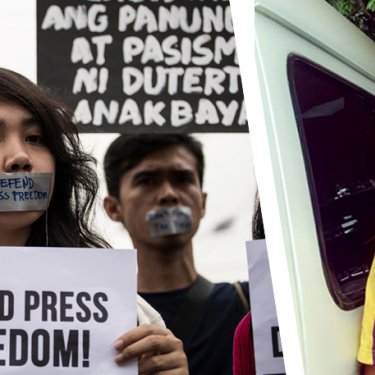RSF condemns fatal shooting of Philippine radio journalist

Reporters Without Borders (RSF) is appalled to learn that a Philippine radio journalist died of his injuries on 1 May after being shot several times by a motorcycle gunman the previous day, and calls on the country’s authorities to identify those responsible.
Edmund Sestoso’s voice was very familiar to listeners of DyGB 91.7 FM, a local radio station in Dumaguete City, in Negros Oriental province, where he was gunned down as he was returning home by motorcycle on 30 April after recording his popular morning programme “Tug-anan sa Power 91,” in which he discussed local affairs, including political issues and armed conflicts.
Sestoso was shot in the chest, stomach and legs at a toll station by an unidentified individual on a motorcycle. The gunman also shot the tires of the pedicab whose driver tried to transport him to a hospital. Aged 51 and the father of two girls aged 11 and 13, Sestoso died yesterday in the hospital to which he was taken after the shooting.
“We are absolutely horrified by this tragedy and we express our complete solidarity with the Philippine media community, which is once again in mourning,” said Daniel Bastard, the head of RSF’s Asia-Pacific desk.
“Edmund Sestoso worked for the public good by explaining news developments in the Dumaguete region to his listeners, sometimes tackling very sensitive issues. We urge the authorities to do everything possible to find both the killer and instigators, and to not let this crime go unpunished.”
The local police have said the shooting was very probably linked to Sestoso’s work as a journalist.
Joel Sy Egco, the head of the Presidential Task Force on Media Security (PTFOMS), told RSF that, until evidence comes to light indicating otherwise, he too is of the view that Sestoso was targeted because of his radio programme. A conflict between rival political factions in Negros Oriental could be to blame. Sestoso used to head the local chapter of the National Union of Journalists of the Philippines (NUJP).
He is the first journalist to be killed in the Philippines in 2018 and at least the fifth to be killed in connection with their journalism since Rodrigo Duterte, who is prone to particularly violent verbal attacks on the media, became president in June 2016.



